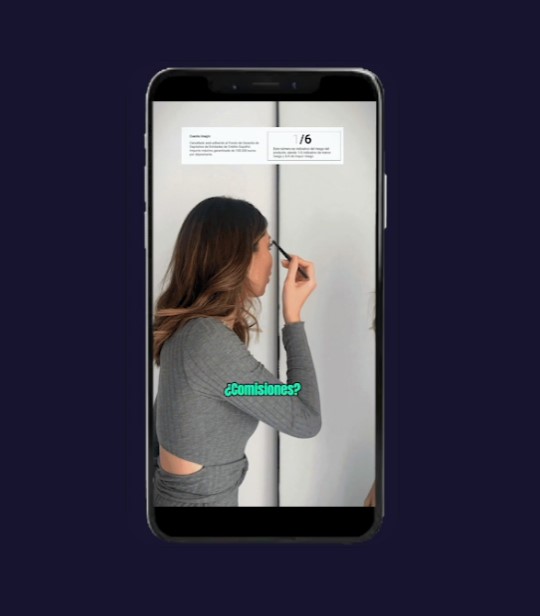User-generated content (UGC) has become a central element in marketing strategies in Spain in 2024, helping brands connect more authentically and deeply with their audience. Choosing the right UGC agency is crucial to harness this powerful resource. In a saturated market where authenticity and personal connection are increasingly important, UGC becomes an essential tool for brands looking to stand out.
Keep reading to learn how to correctly select a UGC agency that not only understands your needs but also amplifies your market presence in 2024.
What is a UGC Agency?
A user-generated content (UGC) agency specializes in curating and maximizing the use of content created by a brand’s consumers. This type of content includes social media posts, reviews, videos, and any other material that users create spontaneously.
UGC agencies help brands identify, collect, and leverage this content to strengthen authenticity and boost engagement.
Understanding the Role of UGC Agencies
User-generated content (UGC) agencies specialize in strategies that allow brands to leverage content created by their consumers.
These agencies play a crucial role not only in collecting this content but also in ensuring that it aligns with the brand’s marketing objectives and complies with all legal regulations.
The Power of User-Generated Content
The power of user-generated content (UGC) lies in its profound impact on consumer behavior and brand loyalty. UGC is created by real users and professional creators, not by the brand itself, which brings a level of authenticity and trust that traditional advertising can only dream of achieving.
When consumers see content from people like themselves, they perceive it as more genuine and trustworthy, leading to greater confidence in the brand. This trust then translates into higher engagement rates, as users are more likely to interact with content that feels authentic and relatable.
Why is UGC important in your marketing strategy?
-
Authenticity: UGC offers a real perspective from consumers about your products or services, increasing the credibility of your brand. When potential customers see real users sharing their experiences and genuine opinions about a product or service, they are more likely to trust the brand.
-
Engagement: This type of content encourages greater interaction from users, creating an active and engaged community, which amplifies the reach and impact of the brand’s message.
-
Cost-effectiveness: You reduce content production costs by leveraging user-generated materials. Additionally, user-generated content often has a longer lifespan and can be reused across multiple channels, further enhancing its profitability.
Selecting the perfect UGC agency:
Choosing the right UGC agency is more than just finding a service provider; it’s about finding a strategic partner who can transform your brand’s interaction with its audience.
A competent UGC agency will not only manage existing content but will also amplify your message and strengthen your connection with your community. If you want to be sure you’re choosing correctly, I recommend focusing on these key aspects.
-
Experience and expertise: Look for agencies with a proven track record in your specific industry. Review case studies that demonstrate their ability to manage and scale successful UGC campaigns.
-
Content quality and creativity: Evaluate the creativity and quality of the content previously curated by the agency. Consider whether their style and tone align with your brand.
-
Technology and tools used: Ensure they use advanced tools for curating and analyzing UGC content. These tools should help optimize the efficiency and effectiveness of campaigns.
-
Ethics and compliance: Confirm that they follow ethical practices, particularly regarding copyright and privacy compliance. Respect for ethics ensures that the content they promote positively strengthens your brand’s perception.
How to evaluate the ROI and success of a UGC campaign
The interaction with UGC content will help you understand its resonance with the audience, see how perceptions of your brand change before and after the campaign, and allow you to analyze sales and conversion metrics directly derived from UGC content.
Engagement and participation
Evaluating the level of audience interaction with user-generated content is essential to understanding its true impact. Metrics such as comments, shares, likes, and view time are key indicators of engagement. These data not only help you measure content receptivity but also allow you to adjust your strategies to increase participation.
For example, a high comment rate on a user-generated video could indicate which aspects of the product interest your audience most, allowing you to focus future campaigns on those points.
Impact on brand perception
User-generated content has the power to transform the public perception of your brand. To measure this impact, you can conduct perception surveys before and after UGC campaigns, analyze the sentiment of social media comments, and observe changes in your online reputation.
Tools like Brandwatch or Google Analytics can provide insights into how perceptions have changed after integrating UGC into your marketing. These changes may reflect an increase in trust and credibility toward your brand.
Direct conversions
To understand how UGC influences conversions, it’s crucial to track the customer journey from the moment they interact with the content to when they make a purchase. You can use UTM tracking codes in UGC posts and monitor conversion rates through Google Analytics.
Comparing these metrics with similar periods without UGC will allow you to see the direct effect of user-generated content on sales.
Steps to choose and partner with a UGC agency.
Now that you know what a UGC agency is and how to find the perfect one to help you, you still need to know the steps to ensure that the approach and relationship have a solid foundation, so that together, you can make your brand grow and increase your sales.
To avoid making mistakes, you just need to follow these steps to the letter:
-
Define your objectives clearly: Before searching for an agency, you need to have a clear idea of what you want to achieve with UGC. Is it increasing brand visibility, improving customer loyalty, or driving direct sales? Defining these goals will help you communicate your specific needs to the agency and ensure that both of you are aligned from the start.
-
Do thorough research before making your shortlist: Start your search by identifying agencies with experience working with brands similar to yours or those known for their innovation in UGC usage. Tools like Clutch.co or even LinkedIn can be helpful for finding agencies with good reviews and relevant case studies.
-
Evaluate all proposals that seem interesting: Once you request proposals from your shortlisted agencies, carefully assess each one. Look at how they plan to achieve your goals, the creativity of their UGC strategies, and how they intend to measure success. It’s essential that their approach aligns with your brand’s culture and values.
-
Negotiate and close the deal: When discussing contract terms, make sure all details are clear, including deliverables, deadlines, and expectations from both sides. It’s also important to discuss the pricing structure and ensure that the agency’s incentives align with your marketing goals. This may include performance bonuses or penalties for non-compliance.
In short, choosing the right UGC agency is more than just finding a service provider; it’s about finding a partner who can help you build and nurture authentic relationships with your audience.
By considering all the factors mentioned here and aligning them with your brand’s objectives, you can ensure that your investment in UGC will contribute significantly to the growth and success of your business in this highly competitive digital market.







